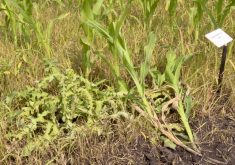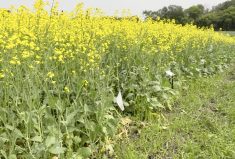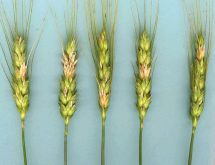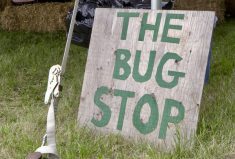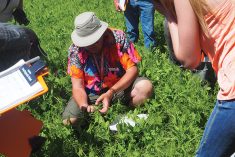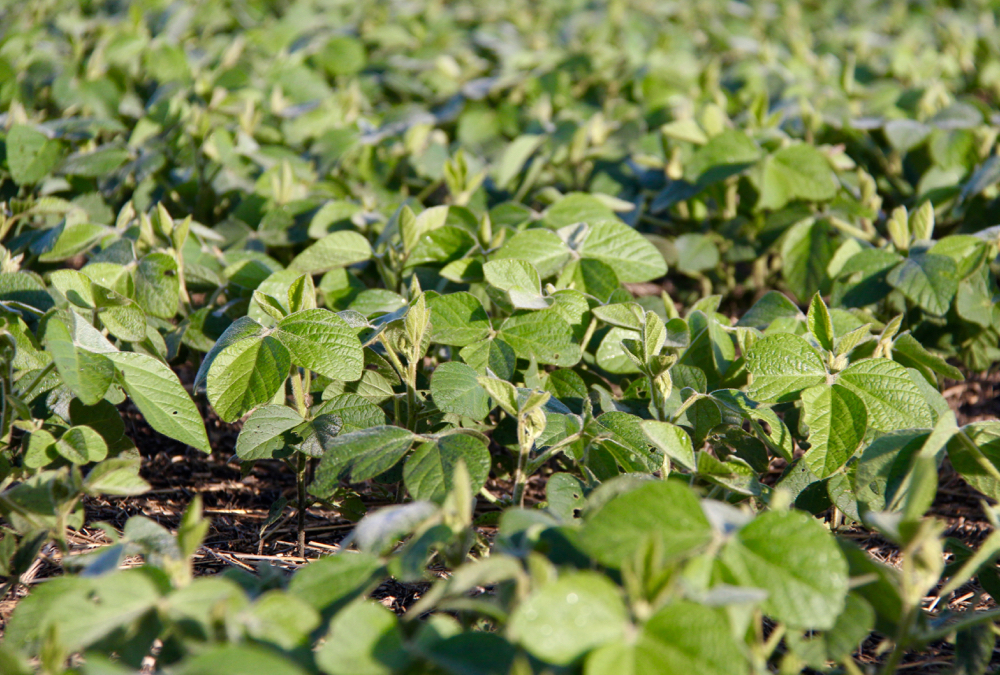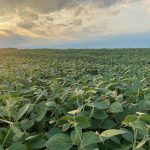Despite forecasts warning of rain, this year’s Crop Diagnostic School (CDS) saw nothing but blue skies. It was welcome stroke of luck for organizers who put together the first “in-person” event since 2019.
“It went really well,” said Marla Riekman, a soil management specialist for Manitoba Agriculture who was heading this year’s event. “It’s been a bit of a rough year. We had a really hard start to the summer with all that extra rain, and we weren’t really sure how many agronomists would be coming.”
Earlier concerns about low attendance proved to be unwarranted.
Read Also
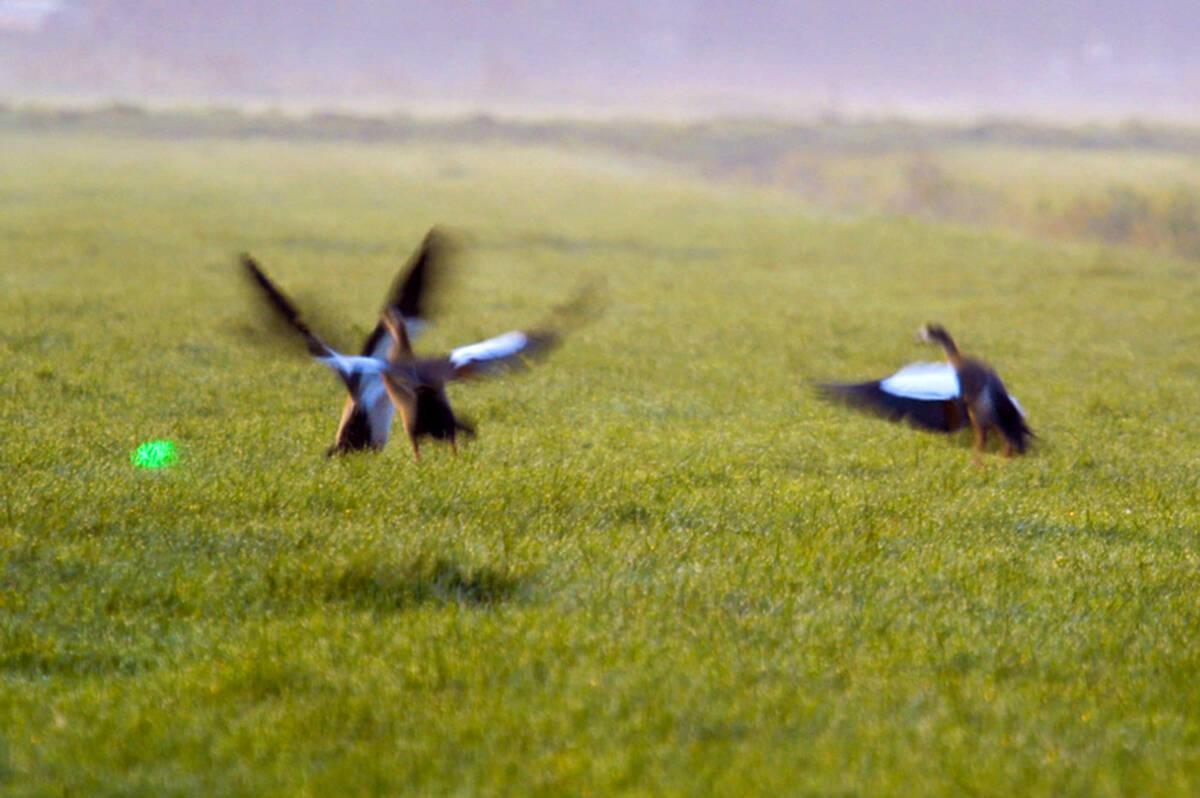
Canada’s import ban on Avix bird control system ruffles feathers
Canadian producers’ access to Bird Control Group’s Avix laser system remains blocked despite efficacy studies and certifications, as avian flu deaths rise.
“It was kind of shocking,” Riekman said. “We had a lot of people come at the last minute, because of course that’s when they figured out that they actually would have the time to come.”
VIDEOS FROM CROP DIAGNOSTIC SCHOOL
- Is your water supply helping or hurting your tank mix?
- PGRs, cereal crop staging and seeding rates
- Spray-timing a fungicide for mycosphaerella blight in peas
About 300 agronomists and farmers attended. The last day is dubbed “Farmer Friday” and is sponsored by the Manitoba Crop Alliance, which covered the costs for farmers in attendance.
“This is actually our favourite day,” Riekman said. “Don’t get me wrong – we love talking to the agronomists too, but we love having the farmers wrap up our week.”
Typically, Farmer Friday runs longer than other days, largely because farmers tend to ask the really hard questions.
“They threw everything at us,” Riekman said. “It’s just really nice to be able to interact with them again.”
While the weather was indeed lucky, luck had nothing to do with the quality of programming and well-paced delivery of information. Organizers supplied water, sunscreen, insect repellent and snacks, along with lunch and plenty of food for thought.
Participants were given information on weed control, N2O reduction, plant pathology and insects of benefit and concern.
Riekman says greater engagement is possible in such face-to-face gatherings.
“It feels so good to be back in person,” she said. During the first year of the pandemic, in 2020, organizers opted for a video-based “pay for access” format where participants could watch instructional videos produced by the school. Some were presented from the fields and others through PowerPoint. In 2021, in an attempt to regain some in-person feel, they spread the course over several weeks and used video conferencing so participants could ask questions.

However, the school is meant to be an in-person event, said Riekman, and she’s glad to put those pandemic years in the rear-view mirror.
“We’re so happy to be able to get back to the way that we’ve done this school for many, many years.”
This year’s event was the school’s de facto 25th anniversary.
“Last year would have been our 25th anniversary, so this year, we were actually able to fully celebrate our 25th year of being back in school session,” Riekman said. “And that has felt awesome, because it’s kind of nice to have this big milestone and be able to celebrate it in person with everybody again.”
There were differences in information delivery this year compared to pre-pandemic years.
“Because we’ve been on hiatus for the last two years, there’s been an opportunity for us to re-evaluate and look at what our options are for the future of the Crop Diagnostic School, and as a result, we decided that we would change a bit of how we have our day scheduled,” Riekman said.
Programming was compressed from two weeks into one, which was partly achieved by eliminating transportation bottlenecks. All presentations were within walking distance, eliminating the need for shuttles.
Riekman says the experiment was a success, although the compressed schedule was exhausting.
“When we’ve had our biggest groups — there were over 100 people here on Wednesday and Thursday this week — we had four rotations of instructors teaching from 8:30 a.m. until 3:00 p.m. So people are tired. They’re ready for a break. But I think it really went well. And we’re looking forward to seeing the evaluations and everything to kind of see if this is the way we want to move forward with the school in the future.”
Jeff Elder, a farmer from the Wawanesa area, attended CDS for the first time this year.
“It was great,” says Elder. “They had beautiful weather, which I’m sure they planned on.”
If the timing permits, Elder says he’d like to attend again.
“There were really informative talks, topics and presenters, a lot of good refreshers and a lot of new stuff. It’s definitely on our radar to come back.”
Jonothan Hodson, a producer from Virden and vice-chair of the Manitoba Crop Alliance, agreed with Elder. It was Hodson’s second time at the CDS.
“You never know what you can get out of it until you come. That’s part of it,” he says. “I find that it’s a really good refresher course.
“I’ve gone to many events with John Heard, Kim Brown and Marla Riekman and I learn something new every time. So I just tried to soak up as much as I can.”




